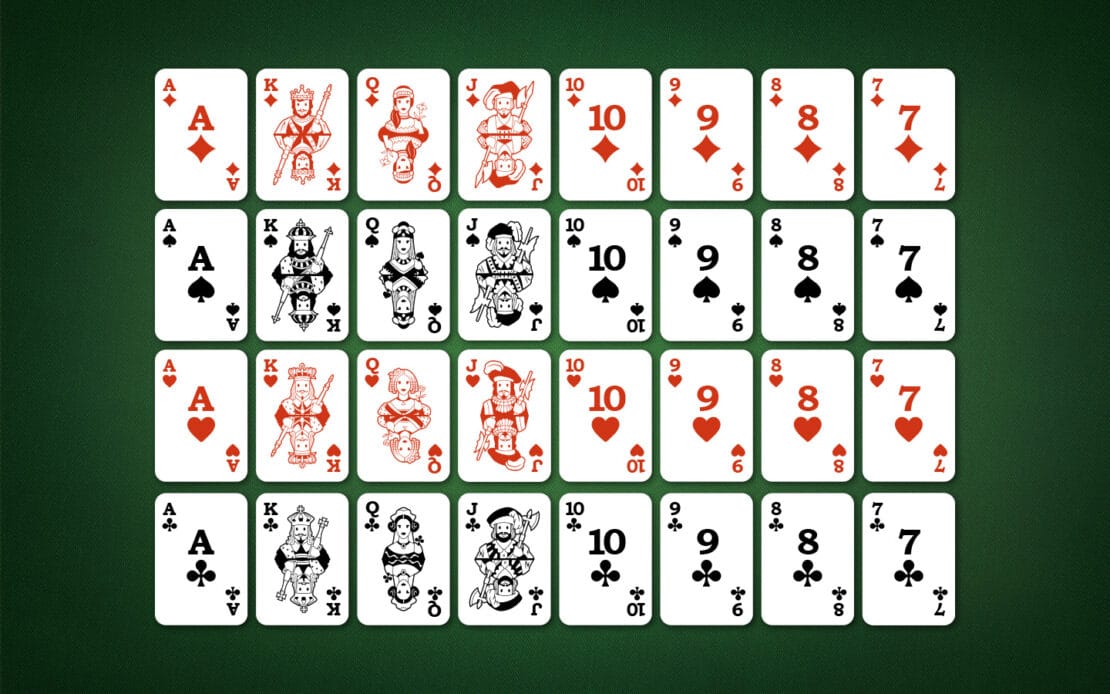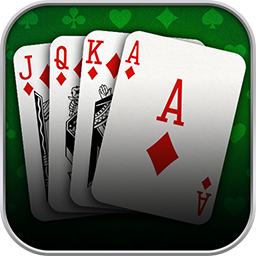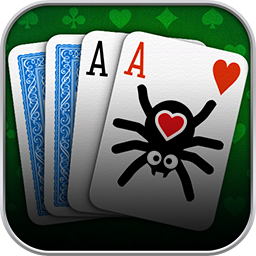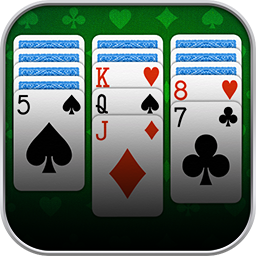
Piquet is a classic French trick-taking card game that is played with two players and a standard deck of 32 French-suited playing cards. It includes announcements of runs and sets in the players’ hands.
The goal of Piquet is to have the highest total score at the end of the game, so players try to make announcements and win tricks to maximize their score.
Piquet was originally a popular card game in France. Later it spread to other countries in Europe, particularly England and Germany. Today, Piquet is still played in various forms in those areas as well as in South America. It’s not as widely played as other card games like Bridge or Poker, but it still has a following of dedicated players who appreciate its gameplay.
The game’s name remains mostly unchanged, just the spelling is sometimes adjusted to local orthography, e.g., Picket in England, Pikieta in Poland, and Pikett in Germany.
The first dealer shuffles and deals the cards in two equal packets of 12 cards each. The remainder becomes the face-down draw pile. Now each player gets to discard at least three but at most five cards which they will replace with cards from the draw pile.
After that, the non-dealer makes announcements about their hand, which will be rewarded with points. Even though announcements reveal information about a player’s hand, players try to make as many announcements as possible to increase their score.
- Point: suit with the highest number of cards in hand (at least four) – score equal to the number of cards in the suit
- Carte blanche: no court cards in hand – 10 points
- Runs: cards in one suit in numerical order
- Tierce (three) – 3 points
- Quart (four) – 4 points
- Quint (five) – 15 points
- Sixième (six) – 16 points
- Septième (seven) – 17 points
- Huitième (eight) – 18 points
- Sets: three or four of a kind (only in ranks Ten or greater)
Pique and Repique add conditional bonus points depending on scores from the declaration phase and trick-taking.

Following the announcements is trick-taking: The non-dealer leads the first trick. The other player must follow suit, if possible, or otherwise, play any card. The highest trump wins the trick or, if no trumps are played, the highest card of the suit led. The winner of each trick leads the next trick. After all cards are played, you score the round.
Points are scored for winning tricks and announcements of certain combinations of cards (see above).
- 1 point for leading a trick
- 1 point for winning a trick (only the player who didn’t lead the trick)
- 1 bonus point for winning the last trick of the round
Then you play the next round: The non-dealer becomes the dealer, and the game continues until one player reaches a predetermined score or a set number of hands have been played.
The rules and scoring system for Piquet may vary slightly depending on the regional variation of the game, and there may be additional special rules concerning announcements in some variations.
If you like combining trick-taking with announcing card combinations, you might want to check out our game at the Pinochle Palace!










